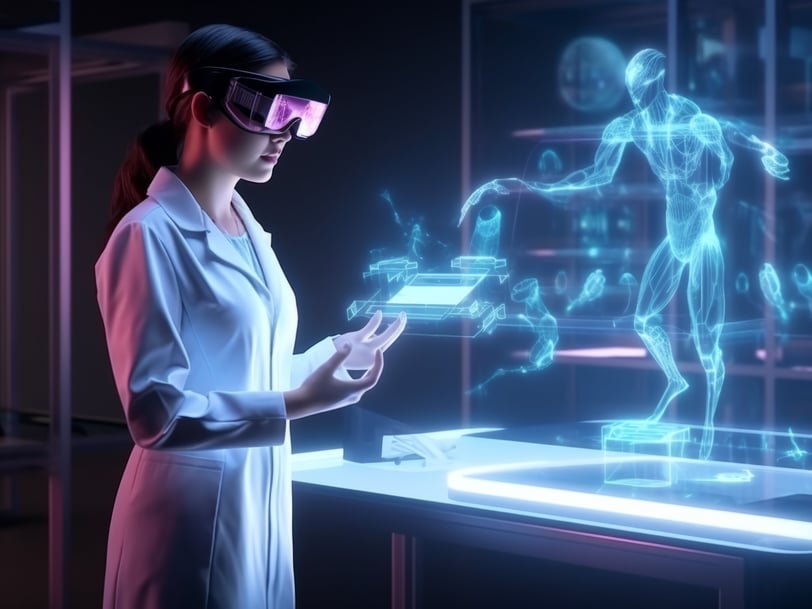The Evolution of AI in Healthcare
AI is transforming healthcare, from early diagnostics to precision medicine. Discover how artificial intelligence is reshaping patient care, making treatments smarter, faster, and more personalized. Artificial Intelligence (AI) is no longer a futuristic concept—it’s actively changing the way healthcare operates today. From diagnosing diseases with greater accuracy to assisting in surgeries and personalizing treatments, AI has evolved rapidly, bringing groundbreaking improvements to patient care. But how did we get here, and what does the future hold? Let’s take a closer look at the evolution of AI in healthcare.
AI TECHNOLOGIES


The Early Days: AI’s First Steps in Medicine
AI’s journey in healthcare started with basic rule-based systems designed to assist doctors with diagnosis and treatment suggestions. These early applications, while limited, set the stage for more advanced innovations. Key developments in the beginning included:
Expert Systems: Programs like MYCIN in the 1970s used rule-based logic to assist with medical diagnoses.
Medical Imaging: AI-supported imaging techniques improved accuracy in radiology and pathology.
Hospital Management: Early automation helped streamline patient records and administrative tasks.
The Rise of Machine Learning and Big Data
As computing power grew, AI moved beyond rigid rule-based systems. Machine learning, which enables AI to learn from data and improve over time, revolutionized healthcare. This shift led to:
Predictive Analytics: AI began identifying disease risks before symptoms appeared, aiding in early intervention.
Natural Language Processing (NLP): AI-powered systems started analyzing electronic health records (EHRs) to detect patterns and trends.
AI Chatbots and Virtual Assistants: Patients could get instant medical advice from AI-powered platforms like Babylon Health and Ada Health.
Modern AI in Healthcare: Transforming Patient Care
Today, AI is deeply embedded in many aspects of healthcare, from diagnostics to surgery and personalized treatment plans. Here’s how AI is making a difference:
AI in Diagnostics and Medical Imaging
Doctors now rely on AI to enhance accuracy and speed in diagnosing diseases:
Radiology: AI detects tumors and fractures in X-rays and MRIs faster than traditional methods.
Pathology: AI-powered microscopes analyze tissue samples to identify cancerous cells.
Cardiology: AI analyzes ECG patterns to predict heart disease risks.
Personalized Medicine: Tailoring Treatments to Individuals
AI is helping doctors move away from a one-size-fits-all approach to treatment:
Genomics: AI studies genetic data to develop customized treatment plans.
Drug Discovery: AI speeds up the process of identifying new drugs and their effects.
Optimized Treatment Plans: AI helps doctors choose the best therapy based on a patient’s medical history. The Evolution of AI in Healthcare Ethical AI in Healthcare: Ensuring AI-driven decisions are fair, unbiased, and transparent.
Final Thoughts
AI is not replacing doctors—it’s empowering them. By enhancing diagnostics, personalizing treatments, and optimizing healthcare operations, AI is improving patient outcomes and making healthcare more efficient than ever. As the technology continues to evolve, one thing is clear: **AI is here to stay, and it’s changing healthcare for the better.
